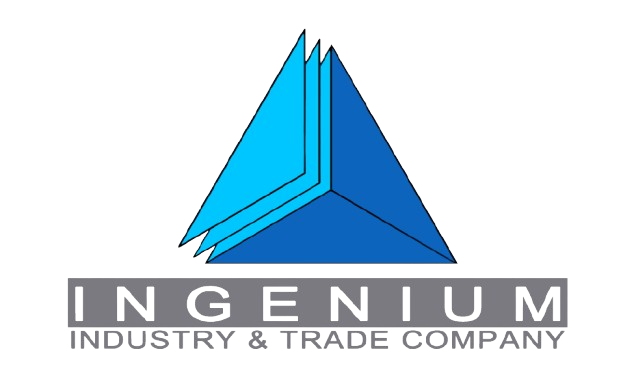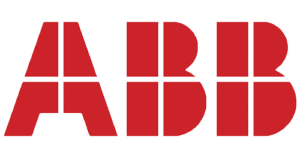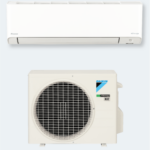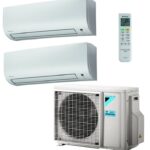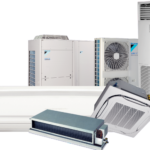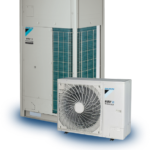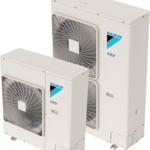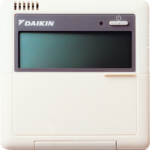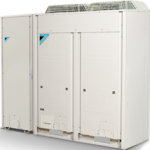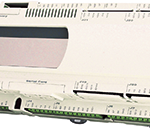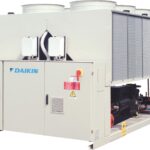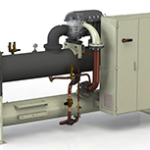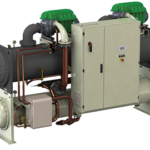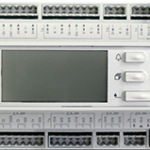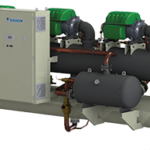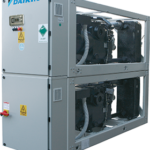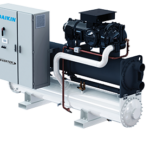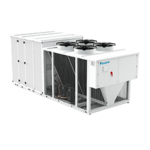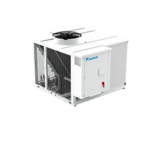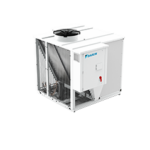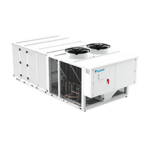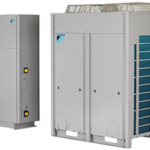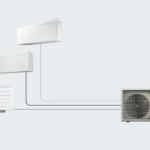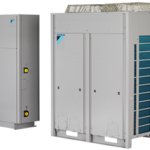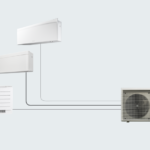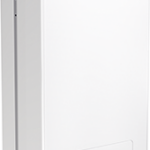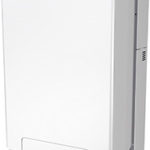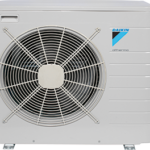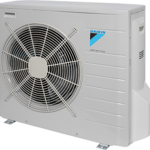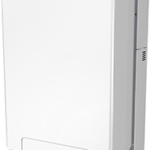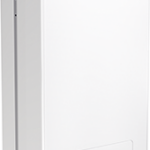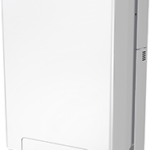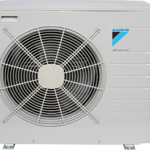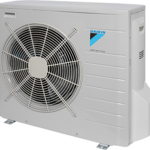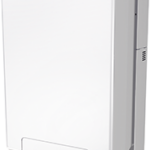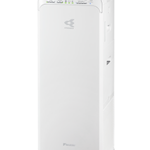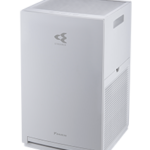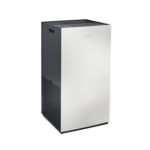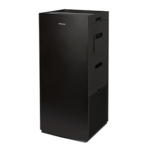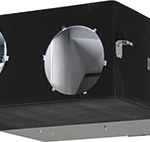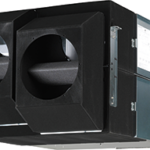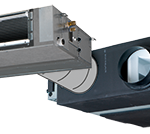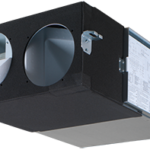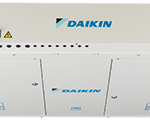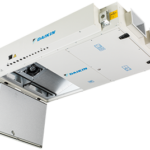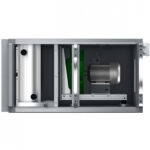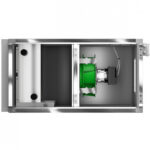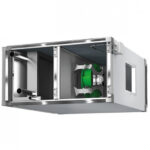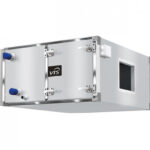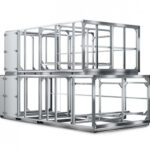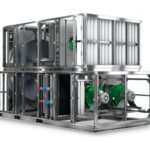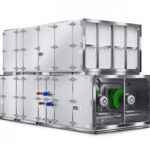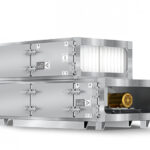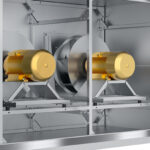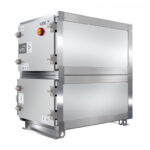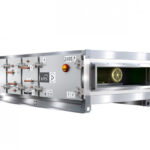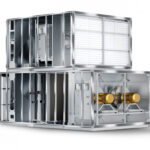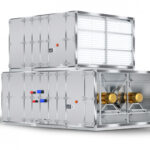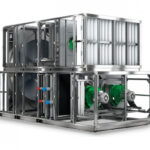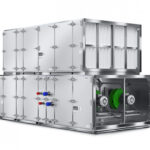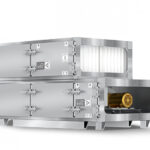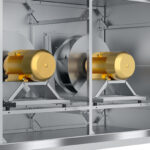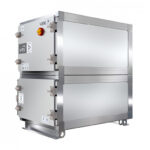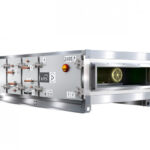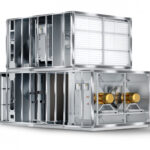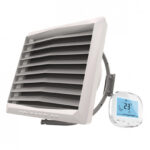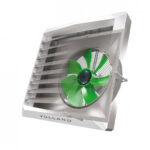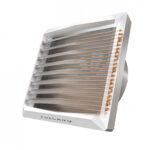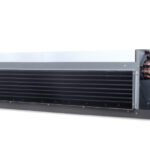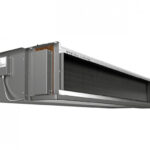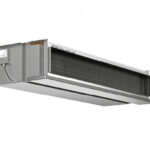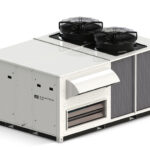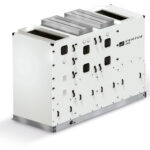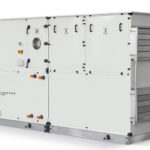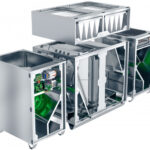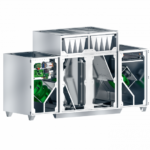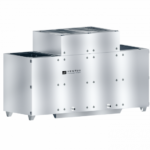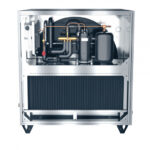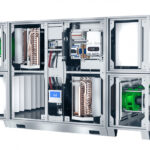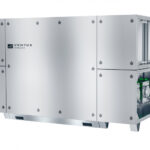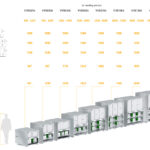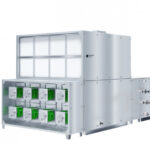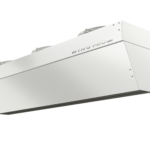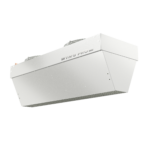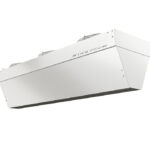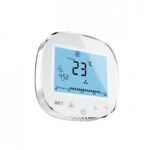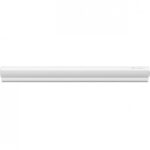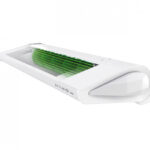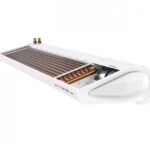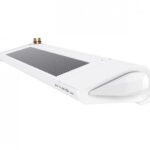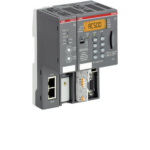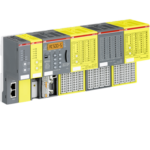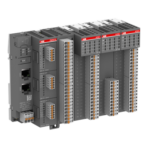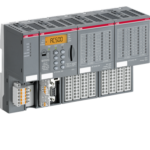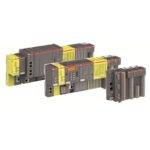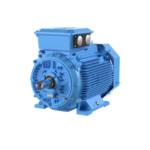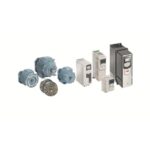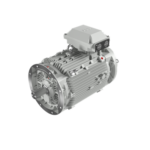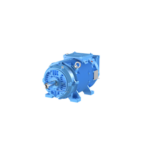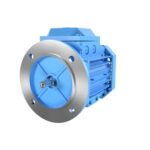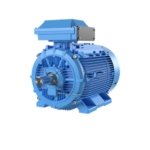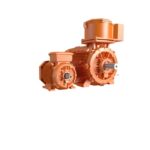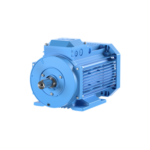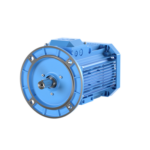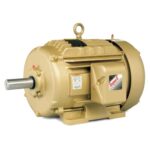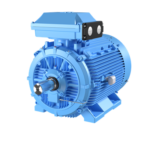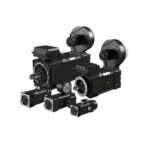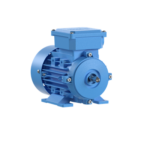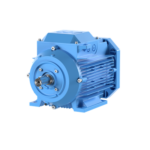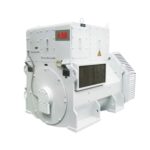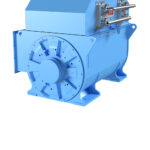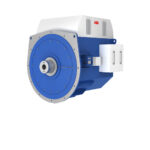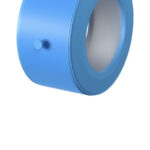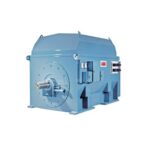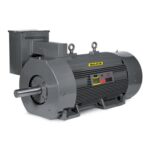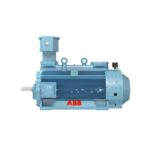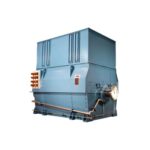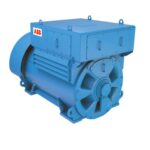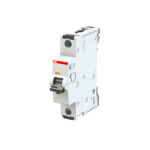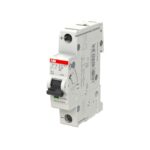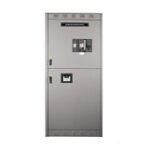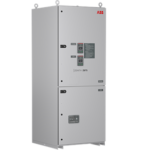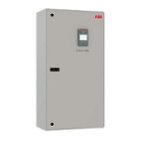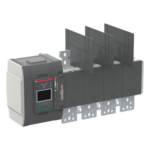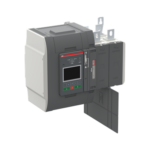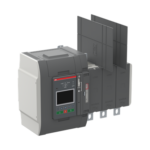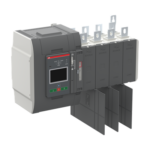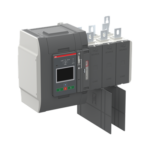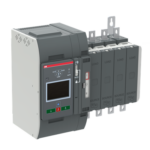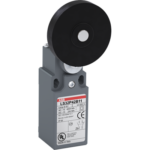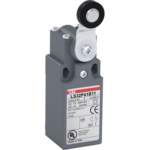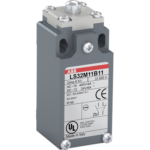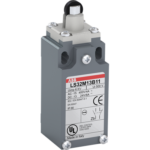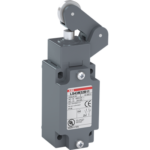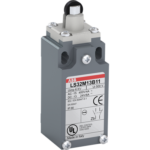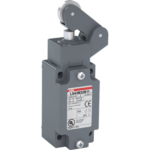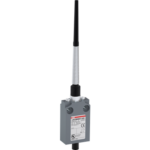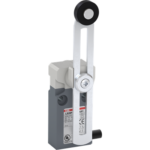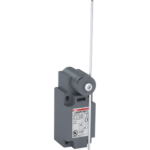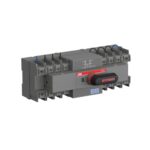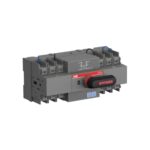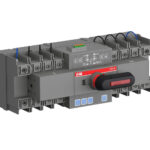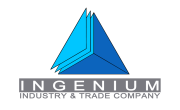Daikin Industries, VTS Group and ABB Group
DAIKIN
Split Systems
Split Systems are renowned for their high energy efficiency, advanced technology, and superior performance in both residential and small commercial environments. Offering both heating and cooling capabilities, Daikin’s split systems provide year-round comfort with precision climate control.
Key Features:
- Energy Efficiency: Designed to minimize energy consumption, Daikin split systems utilize inverter technology, which adjusts the compressor speed to match cooling or heating demands. This reduces energy waste and ensures efficient operation, lowering electricity bills and environmental impact.
- Quiet Operation: Daikin systems are known for their quiet performance, ensuring that your home or office remains peaceful and comfortable without noisy disruptions.
- Advanced Air Filtration: Many Daikin split systems come equipped with advanced air purification filters that trap dust, allergens, and odors, improving indoor air quality and making them ideal for allergy sufferers.
- Easy Control: With user-friendly remote controls and smart system compatibility, Daikin split systems can be easily managed to maintain the desired temperature, whether at home or on the go through smartphone apps.
- Stylish Design: Daikin units are designed to complement any interior décor, with sleek, modern designs that are both functional and aesthetically pleasing.
- Durability and Reliability: Built with high-quality materials and advanced engineering, Daikin split systems are known for their durability and long lifespan, requiring minimal maintenance.
Applications:
- Residential Homes: Ideal for single rooms or entire houses, providing efficient and quiet temperature control.
- Small Offices & Shops: Perfect for maintaining a comfortable environment for employees and customers.
- Apartments: Compact and stylish units fit seamlessly into any living space, offering personalized climate control.
With a commitment to sustainability and innovation, Daikin Split Systems are a top choice for anyone looking to enhance comfort while reducing energy costs.
Multi-Split Systems
Multi-Split Systems offer flexible, energy-efficient climate control by allowing multiple indoor units to connect to a single outdoor unit. These systems are ideal for homes, apartments, and small to medium commercial spaces where individual room control is essential.
Key Features:
- Multiple Indoor Units, One Outdoor Unit: A single Daikin outdoor unit can support up to five indoor units, providing independent temperature control for each room or zone. This makes it an efficient solution for multi-room homes, offices, and retail spaces.
- Energy Efficiency: Daikin Multi-Split systems use inverter technology, optimizing energy consumption by adjusting the compressor speed based on the cooling or heating demand. This reduces energy waste and enhances system performance.
- Flexible Indoor Unit Options: Choose from a variety of indoor unit types—including wall-mounted, floor-standing, ducted, or ceiling cassette units—allowing you to customize the system to meet your specific design and comfort needs.
- Individual Temperature Control: Each indoor unit operates independently, allowing you to set different temperatures in different rooms. This ensures personalized comfort for each area, making the system versatile and user-friendly.
- Quiet Operation: Daikin Multi-Split systems are designed for minimal noise, ensuring a comfortable and quiet environment both indoors and outdoors.
- Space-Saving Design: The compact outdoor unit allows for efficient use of space, making it ideal for installations where exterior room is limited, such as balconies or small yards.
- Smart Control Options: Daikin offers advanced control options, including smart thermostats and smartphone apps, allowing you to adjust the temperature remotely and manage the system more conveniently.
Applications:
- Homes with Multiple Rooms: Ideal for houses with separate living areas, bedrooms, and kitchens that require individual climate control.
- Apartments & Condominiums: Provides efficient temperature control for multi-room apartments while using minimal outdoor space.
- Small Commercial Spaces: Perfect for offices, retail stores, and restaurants, ensuring tailored climate solutions for various areas.
With Daikin Multi-Split Systems, you enjoy flexible, energy-efficient cooling and heating for multiple rooms with the convenience of individual temperature control, all while minimizing the outdoor footprint.
VRV Systems
Daikin VRV (Variable Refrigerant Volume) Systems are highly advanced, flexible HVAC solutions designed for large-scale commercial buildings, multi-story apartments, hotels, and office complexes. These systems provide individualized climate control for multiple zones, ensuring optimal comfort while maintaining energy efficiency across the entire building.
Key Features:
- Zoned Climate Control: The VRV system allows for precise temperature control in different areas or rooms (zones) of a building. Each zone can be controlled independently, providing personalized comfort for various spaces within the same structure.
- Energy Efficiency: By utilizing inverter technology and only delivering the necessary amount of refrigerant to each indoor unit, the Daikin VRV system significantly reduces energy consumption. It adjusts compressor speeds based on the real-time demand, optimizing efficiency and lowering operational costs.
- Flexible Design: The modular nature of the VRV system allows for extensive customization. With a variety of indoor unit types (wall-mounted, ducted, ceiling cassette, etc.), it can adapt to a wide range of architectural designs and space requirements.
- Space-Saving Installation: VRV systems use a single outdoor unit to connect multiple indoor units, minimizing the need for extensive outdoor space. This makes it an ideal solution for high-rise buildings or locations with limited exterior installation space.
- Heat Recovery Option: Daikin VRV systems offer heat recovery capabilities, allowing the system to provide both heating and cooling simultaneously in different zones. For example, heat can be extracted from one part of the building (where cooling is required) and transferred to another part (where heating is needed), maximizing energy efficiency.
- Smart Controls: Daikin VRV systems can be integrated with building management systems and controlled via smart interfaces or apps. This allows for remote monitoring, scheduling, and real-time adjustments to maximize comfort and efficiency.
- Quiet Operation: Designed with advanced noise-reduction features, Daikin VRV systems operate quietly, both indoors and outdoors, ensuring a comfortable environment without disturbances.
Applications:
- Large Commercial Buildings: Perfect for offices, shopping malls, and hotels, where different areas need separate climate control without compromising efficiency.
- Multi-Story Apartments: Provides centralized yet flexible climate control for multiple units, each with independent temperature settings.
- Healthcare Facilities: Ideal for hospitals and clinics, where different rooms and departments require specific temperature and air quality conditions.
- Educational Institutions: Suitable for schools and universities, offering individual control for classrooms, libraries, and administrative offices.
Benefits:
- Scalability: As a modular system, VRV can be expanded to fit growing building needs, making it future-proof for large projects.
- Reduced Operational Costs: High efficiency and energy savings reduce long-term operating expenses.
- Environmental Sustainability: With advanced refrigerant technology and heat recovery options, VRV systems help lower the environmental footprint.
Daikin VRV Systems are the ultimate solution for buildings requiring precise, scalable, and energy-efficient climate control across multiple zones. They offer unmatched flexibility and customization, making them ideal for complex commercial and residential projects.
Air-Cooled Chillers
Air-Cooled Chillers are advanced cooling systems designed to provide efficient and reliable cooling for various commercial, industrial, and institutional applications. These chillers use air to reject heat from the refrigerant, making them suitable for installations where water resources are limited or not available.
Key Features:
- Energy Efficiency: Daikin air-cooled chillers are engineered to maximize energy efficiency through the use of advanced technologies such as high-efficiency compressors, optimized heat exchangers, and variable speed fans. This reduces operational costs and improves overall performance.
- Variable Speed Technology: Many models incorporate variable speed drives (VSD) for compressors and fans. This allows the chiller to adjust its cooling capacity based on real-time demand, leading to lower energy consumption and enhanced operational efficiency.
- Compact Design: Air-cooled chillers are designed to be compact and space-efficient, making them suitable for installations where space is limited. Their self-contained units simplify installation and maintenance.
- Quiet Operation: Daikin air-cooled chillers are built with noise-reducing features, such as sound-absorbing materials and quiet fan designs, to ensure minimal noise disruption. This is ideal for environments where noise levels need to be controlled, such as office buildings or residential areas.
- Smart Controls: Equipped with advanced control systems, Daikin air-cooled chillers offer precise management of cooling operations. Features include remote monitoring, real-time performance data, and integration with building management systems (BMS) for enhanced control and optimization.
- Durability and Reliability: Daikin air-cooled chillers are designed to withstand harsh environmental conditions and provide reliable performance over the long term. They are built with high-quality materials and undergo rigorous testing to ensure durability and dependability.
- Environmental Sustainability: Daikin is committed to reducing the environmental impact of its chillers. Their air-cooled chillers use low Global Warming Potential (GWP) refrigerants and comply with international environmental regulations, contributing to a more sustainable cooling solution.
- Ease of Installation and Maintenance: Air-cooled chillers are easier to install compared to water-cooled systems because they do not require a separate cooling tower or water source. Maintenance is also simplified due to the self-contained design.
Applications:
- Commercial Buildings: Ideal for offices, shopping malls, hotels, and other commercial properties where efficient and reliable cooling is required.
- Industrial Facilities: Suitable for manufacturing plants, warehouses, and production facilities where consistent cooling is essential.
- Institutional Buildings: Used in schools, hospitals, and other institutions to provide comfortable and controlled indoor environments.
Benefits:
- Cost Savings: High energy efficiency and variable speed technology help reduce operational costs and lower energy bills.
- Space Efficiency: The compact design of air-cooled chillers makes them suitable for installations with limited space.
- Reduced Environmental Impact: Low GWP refrigerants and energy-efficient operation contribute to a lower carbon footprint and support sustainable building practices.
- Flexible Installation: Air-cooled chillers do not require a water source or cooling tower, making them easier to install and maintain.
Daikin Air-Cooled Chillers offer a reliable, efficient, and environmentally friendly cooling solution for a wide range of applications. Their advanced technology, compact design, and energy-saving features make them an excellent choice for commercial, industrial, and institutional cooling needs.
Water-Cooled Chillers
Water-Cooled Chillers are high-performance cooling systems designed to provide efficient and reliable cooling for large commercial, industrial, and institutional applications. These chillers use water as the medium to reject heat from the refrigerant, offering high efficiency and performance for demanding cooling needs.
Key Features:
- High Efficiency: Daikin water-cooled chillers are known for their exceptional energy efficiency. They use water to dissipate heat, which typically results in better performance compared to air-cooled systems, especially in larger applications. Advanced technologies, such as high-efficiency compressors and heat exchangers, further enhance efficiency.
- Variable Speed Technology: Many models feature variable speed drives (VSD) for compressors and pumps. This allows the chiller to adjust its cooling output based on real-time demand, optimizing energy use and improving overall system efficiency.
- Compact and Modular Design: Daikin water-cooled chillers are available in modular designs that can be scaled up or down based on cooling needs. This flexibility allows for easy expansion and integration into existing systems.
- Quiet Operation: Designed with sound-dampening features and low-noise components, Daikin water-cooled chillers operate quietly, making them suitable for environments where noise control is important, such as office buildings and healthcare facilities.
- Advanced Controls: Daikin chillers come with sophisticated control systems that offer precise management of cooling operations. Features include remote monitoring, real-time performance data, and integration with building management systems (BMS) for enhanced control and optimization.
- Durability and Reliability: Constructed with high-quality materials and components, Daikin water-cooled chillers are built to withstand harsh operating conditions and provide reliable performance over the long term.
- Environmental Sustainability: Daikin is committed to reducing the environmental impact of its chillers. Their water-cooled chillers use low Global Warming Potential (GWP) refrigerants and are designed to meet international environmental regulations, supporting sustainable cooling solutions.
- Water Efficiency: Water-cooled chillers are designed to work with closed-loop cooling systems, which can be more water-efficient than open-loop systems. They reduce water consumption and minimize the need for water treatment.
Applications:
- Commercial Buildings: Ideal for large office buildings, shopping malls, hotels, and other commercial properties where high-capacity cooling is required.
- Industrial Facilities: Suitable for manufacturing plants, warehouses, and production facilities where consistent and efficient cooling is essential.
- Data Centers: Designed to maintain optimal temperature conditions for critical IT equipment, ensuring reliable operation and preventing overheating.
- Institutional Buildings: Used in schools, hospitals, and other institutions to provide effective cooling and maintain a comfortable environment.
Benefits:
- Enhanced Efficiency: Water-cooled chillers typically offer higher efficiency and better performance compared to air-cooled systems, especially in larger installations.
- Reduced Operating Costs: Advanced technologies and variable speed drives contribute to lower energy consumption and reduced operational costs.
- Quiet Operation: Low-noise design ensures minimal disruption in noise-sensitive environments.
- Environmental Impact: Low GWP refrigerants and efficient operation help reduce the carbon footprint and support sustainable building practices.
- Flexible Installation: Modular design allows for easy scaling and integration into existing systems, providing flexibility for various cooling needs.
Daikin Water-Cooled Chillers deliver a reliable, efficient, and environmentally friendly cooling solution for large-scale applications. Their advanced technology, high performance, and flexibility make them an excellent choice for commercial, industrial, and institutional cooling needs.
Air to Air Heat Pumps
Air-to-Air Heat Pumps are advanced systems designed to provide both heating and cooling by transferring heat from outdoor air into indoor spaces. These heat pumps offer a highly efficient and eco-friendly alternative to traditional heating systems, making them ideal for residential and commercial applications where energy efficiency and comfort are priorities.
Key Features:
- Energy Efficiency: Air-to-air heat pumps extract heat from the outdoor air and transfer it indoors, even in cold weather. They use significantly less energy than conventional heating systems, reducing energy bills and carbon emissions. The system operates efficiently throughout the year, providing both heating in winter and cooling in summer.
- Inverter Technology: Daikin’s inverter technology allows the heat pump to adjust the compressor’s speed to meet the exact heating or cooling demand. This optimizes energy use and ensures that the system operates smoothly and efficiently, maintaining consistent indoor temperatures without unnecessary energy waste.
- Heating and Cooling in One: Unlike traditional systems that focus solely on heating or cooling, Daikin air-to-air heat pumps provide both functions in one unit. They offer a year-round solution for comfort, switching between heating and cooling modes as needed to maintain optimal indoor conditions.
- Quiet Operation: Daikin’s air-to-air heat pumps are designed to operate quietly, ensuring that they don’t disrupt the peace in residential or commercial spaces. This makes them ideal for homes, offices, and other environments where noise sensitivity is important.
- Environmentally Friendly: Daikin is committed to sustainability, and their air-to-air heat pumps use refrigerants with low Global Warming Potential (GWP), reducing the environmental impact. The system’s energy efficiency also contributes to a lower carbon footprint.
- Advanced Air Filtration: Many Daikin heat pumps are equipped with air purifiers or filters that improve indoor air quality by removing dust, allergens, and pollutants, making the environment healthier for occupants, especially for those with allergies or respiratory issues.
- Smart Control: Daikin air-to-air heat pumps come with advanced control systems that allow users to adjust settings via remote controls or smart home integrations. The system can also be managed through smartphone apps, providing convenience and the ability to monitor energy consumption.
Applications:
- Residential Homes: Ideal for single-family homes or apartments, providing efficient year-round comfort by replacing traditional heating and air conditioning systems.
- Commercial Spaces: Suitable for small to medium offices, shops, and restaurants, ensuring a comfortable environment while reducing energy costs.
- Renovations and Retrofits: Perfect for upgrading older heating systems in homes or commercial buildings to more energy-efficient, environmentally friendly solutions.
Benefits:
- Lower Operating Costs: By using outdoor air as the primary energy source, Daikin air-to-air heat pumps significantly reduce heating and cooling expenses.
- Comfort in All Seasons: The ability to provide both heating and cooling ensures that you have a comfortable indoor environment no matter the weather.
- Sustainable Heating Solution: These systems reduce the reliance on fossil fuels and lower greenhouse gas emissions, supporting eco-friendly building practices.
With Daikin Air-to-Air Heat Pumps, you get a reliable, energy-efficient, and environmentally friendly solution for year-round climate control. Perfect for homes and businesses alike, these systems combine advanced technology with sustainability to create comfortable indoor environments with minimal energy use.
Air to Water Heat Pumps
Air-to-Water Heat Pumps are versatile systems designed to provide heating, cooling, and hot water by extracting heat from the outside air and transferring it to water-based heating systems. These heat pumps offer an efficient and eco-friendly solution for residential, commercial, and industrial applications, ensuring reliable climate control and energy savings throughout the year.
Key Features:
- Energy Efficiency: Daikin air-to-water heat pumps are highly efficient, converting a small amount of electrical energy into a large amount of heat energy by extracting heat from the outdoor air. This process is more energy-efficient compared to traditional heating systems, reducing overall energy consumption and lowering utility bills.
- Heating and Hot Water: These heat pumps provide versatile functionality by supplying hot water for domestic use (e.g., showers, taps) and space heating through radiators or underfloor heating systems. This dual-purpose capability makes them an all-in-one solution for comfort and convenience.
- Cooling Option: Some models of Daikin air-to-water heat pumps also offer cooling capabilities, making them suitable for year-round use. By reversing the heat transfer process, these systems can provide cooling to indoor spaces during warmer months.
- Inverter Technology: Daikin’s advanced inverter technology ensures that the heat pump operates efficiently by adjusting the compressor’s speed based on demand. This results in consistent indoor temperatures, reduced energy consumption, and quieter operation.
- Environmental Sustainability: Daikin heat pumps use eco-friendly refrigerants with low Global Warming Potential (GWP), contributing to reduced greenhouse gas emissions and environmental impact. Their high efficiency also supports sustainability goals by minimizing energy use.
- Smart Controls: Equipped with smart control options, Daikin air-to-water heat pumps can be managed remotely via smartphone apps or integrated with building management systems. This allows for easy scheduling, monitoring, and adjustment of settings to optimize performance and energy savings.
- Flexible Installation: Daikin heat pumps are designed for flexibility in installation, accommodating various space requirements and integration with existing heating systems. They can be installed as part of a new system or retrofitted into existing setups.
Applications:
- Residential Homes: Ideal for single-family homes, providing efficient heating, cooling, and hot water solutions while reducing energy costs.
- Commercial Buildings: Suitable for offices, retail spaces, and other commercial properties, offering reliable climate control and hot water for various applications.
- Industrial Facilities: Can be used for heating large industrial spaces or providing hot water in commercial settings, such as hotels and restaurants.
Benefits:
- Cost Savings: By utilizing outdoor air as a primary energy source, Daikin air-to-water heat pumps help lower heating and hot water costs compared to conventional systems.
- Year-Round Comfort: The ability to provide both heating and cooling ensures consistent indoor comfort throughout the year.
- Reduced Environmental Impact: High energy efficiency and the use of eco-friendly refrigerants support sustainable building practices and lower carbon emissions.
Daikin Air-to-Water Heat Pumps deliver a comprehensive solution for heating, cooling, and hot water needs, combining advanced technology with energy efficiency to enhance comfort and sustainability in residential and commercial settings.
Hybrid Heat Pumps
Daikin Hybrid Heat Pumps
Daikin Hybrid Heat Pumps combine the benefits of heat pump technology with traditional gas boilers to create an efficient, versatile, and environmentally friendly heating solution. Designed to maximize energy savings and minimize carbon emissions, hybrid heat pumps provide reliable and flexible climate control for residential and commercial applications.
Key Features:
- Dual Technology: Daikin hybrid heat pumps integrate an air-to-water heat pump with a gas boiler. The system intelligently selects the most efficient heat source based on outdoor temperatures, energy prices, and heating demands. This ensures optimal performance and cost savings throughout the year.
- Energy Efficiency: By using the heat pump for low-temperature heating (e.g., underfloor heating or low-temperature radiators) and the gas boiler for high-temperature needs (e.g., traditional radiators or rapid hot water), the system achieves high overall efficiency and reduces energy consumption.
- Flexible Operation: The hybrid system can operate in various modes, including:
- Heat Pump Mode: For mild weather, the heat pump provides heating and hot water efficiently.
- Boiler Mode: When the outside temperature drops significantly, the gas boiler supplements or takes over heating to ensure consistent comfort.
- Combined Mode: Both systems work together to provide efficient heating and hot water, optimizing performance and energy use.
- Environmental Benefits: By using renewable energy from the air, the hybrid heat pump reduces the reliance on fossil fuels and lowers carbon emissions. This contributes to a more sustainable and eco-friendly heating solution.
- Smart Controls: Daikin hybrid heat pumps are equipped with advanced control systems that allow for easy management and monitoring. Users can adjust settings, schedule heating times, and access real-time data through smartphone apps or building management systems.
- Enhanced Comfort: The system provides consistent heating and hot water, adapting to varying weather conditions and ensuring a comfortable indoor environment throughout the year.
- Cost Savings: By optimizing the use of renewable energy from the air and supplementing with a gas boiler only when necessary, the hybrid system helps lower energy bills and reduce overall heating costs.
Applications:
- Residential Homes: Ideal for single-family homes and larger residences, providing efficient and adaptable heating and hot water solutions.
- Commercial Properties: Suitable for small to medium commercial spaces, offering reliable climate control with energy savings.
- Renovations and Retrofits: Perfect for upgrading existing heating systems, allowing homeowners to benefit from advanced technology without a complete system overhaul.
Benefits:
- Energy Efficiency: Maximizes energy savings by combining heat pump and boiler technology to meet varying heating demands efficiently.
- Reduced Environmental Impact: Lower carbon emissions and reduced reliance on fossil fuels support sustainable building practices.
- Flexibility: Adapts to changing weather conditions and heating needs, ensuring consistent comfort and cost-effective operation.
Daikin Hybrid Heat Pumps offer a sophisticated and efficient approach to heating and hot water, integrating the advantages of renewable energy with traditional gas heating to deliver reliable performance and sustainability for residential and commercial applications.
Water to water Heat Pumps
Daikin Water-to-Water Heat Pumps
Daikin Water-to-Water Heat Pumps are advanced heating and cooling systems designed to transfer thermal energy between water sources, providing efficient climate control for various applications. These systems are ideal for use in residential, commercial, and industrial settings, offering versatile solutions for space heating, cooling, and domestic hot water production.
Key Features:
- High Efficiency: Daikin water-to-water heat pumps are designed to maximize efficiency, using the natural thermal properties of water to transfer heat. This results in significant energy savings compared to conventional heating and cooling systems.
- Versatile Applications: These systems can be used for a variety of applications, including:
- Space Heating: Provides comfortable heating for buildings by transferring heat from a water source to the indoor environment.
- Cooling: Offers cooling by transferring heat from the indoor environment to a water source, suitable for air conditioning in larger spaces.
- Domestic Hot Water: Can supply hot water for domestic use, such as for showers, washing, and heating systems.
- Environmentally Friendly: By utilizing renewable thermal energy from water sources, Daikin water-to-water heat pumps reduce reliance on fossil fuels and lower greenhouse gas emissions, contributing to a more sustainable energy system.
- Advanced Controls: Equipped with sophisticated control systems that allow for precise temperature regulation, scheduling, and integration with building management systems. This ensures optimal performance and comfort.
- Flexible Installation: Available in various configurations and sizes to accommodate different installation requirements and space constraints. Can be integrated with existing heating and cooling systems or used as standalone solutions.
- Durability and Reliability: Built with high-quality materials and advanced engineering to ensure long-lasting performance and reliability in various operating conditions.
- Low Noise Operation: Designed to operate quietly, making them suitable for residential and commercial environments where noise levels are a concern.
Benefits:
- Energy Savings: High efficiency and reduced energy consumption lead to lower operating costs and improved cost-effectiveness over time.
- Comfort: Provides consistent and comfortable heating and cooling, ensuring a pleasant indoor environment year-round.
- Sustainability: Reduces environmental impact by utilizing renewable energy sources and minimizing carbon footprint.
- Flexibility: Versatile applications and flexible installation options make it suitable for a wide range of building types and needs.
- Low Maintenance: Requires minimal maintenance compared to traditional heating and cooling systems, contributing to lower long-term costs.
Applications:
- Residential: Ideal for providing efficient heating, cooling, and hot water in homes, improving comfort and reducing energy bills.
- Commercial: Suitable for office buildings, retail spaces, and other commercial properties where reliable and efficient climate control is essential.
- Industrial: Used in industrial facilities for process heating, cooling, and domestic hot water production, enhancing operational efficiency and sustainability.
Daikin Water-to-Water Heat Pumps offer an effective and efficient solution for managing heating, cooling, and hot water needs. Their advanced technology, high efficiency, and environmentally friendly operation make them a valuable choice for a wide range of applications.
Air Purifiers
Air Purifiers are designed to enhance indoor air quality by removing pollutants, allergens, and contaminants from the air. Utilizing advanced filtration technologies, Daikin air purifiers provide cleaner, healthier air for homes, offices, and other indoor spaces.
Key Features:
- Advanced Filtration: Daikin air purifiers are equipped with multi-stage filtration systems that often include pre-filters, HEPA filters, and activated carbon filters. These stages work together to capture a wide range of airborne particles, including dust, pollen, smoke, and odors.
- HEPA Filtration: The High-Efficiency Particulate Air (HEPA) filters in Daikin air purifiers are capable of capturing particles as small as 0.3 microns with 99.97% efficiency. This includes common allergens such as pet dander, mold spores, and fine dust.
- Activated Carbon Filters: These filters effectively remove odors, volatile organic compounds (VOCs), and gaseous pollutants from the air. They are particularly useful for eliminating smoke, cooking smells, and other unpleasant odors.
- Photocatalytic Filters: Some models include photocatalytic filters that use light-activated technology to break down harmful pollutants and microorganisms, further improving air quality and safety.
- Quiet Operation: Daikin air purifiers are designed to operate quietly, ensuring that they do not disrupt the tranquility of your living or working environment. This makes them suitable for bedrooms, offices, and other noise-sensitive areas.
- Smart Controls: Many Daikin air purifiers come with smart control features, including remote controls or smartphone apps. These allow users to adjust settings, monitor air quality, and schedule operation from a distance.
- Real-Time Air Quality Monitoring: Some models are equipped with sensors that continuously monitor indoor air quality. They provide real-time feedback and automatically adjust the purifier’s operation based on current air conditions.
- Energy Efficiency: Daikin air purifiers are designed to be energy-efficient, consuming minimal power while providing effective air cleaning. This helps reduce operational costs and supports sustainable living practices.
Applications:
- Residential Homes: Ideal for living rooms, bedrooms, and kitchens, enhancing indoor air quality and providing relief from allergens and pollutants.
- Commercial Spaces: Suitable for offices, waiting rooms, and other public areas, improving air quality and creating a healthier work environment.
- Healthcare Facilities: Effective in hospitals, clinics, and other healthcare settings, where high air quality is crucial for patient health and safety.
Benefits:
- Improved Air Quality: Daikin air purifiers effectively remove a wide range of airborne contaminants, leading to cleaner, healthier indoor air.
- Allergy Relief: By capturing allergens and irritants, these purifiers help reduce allergy symptoms and improve overall comfort for sensitive individuals.
- Odor Elimination: Activated carbon filters help remove unpleasant odors, creating a fresher and more pleasant indoor environment.
- Energy Savings: Designed for low energy consumption, Daikin air purifiers offer effective air cleaning without significantly increasing energy bills.
Daikin Air Purifiers are a valuable addition to any indoor space, providing advanced filtration and air quality management to create a healthier, more comfortable environment. Their combination of technology, efficiency, and convenience makes them suitable for a wide range of applications.
Heat Recovery Ventilators (HRV)
Heat Recovery Ventilators (HRV) are advanced systems designed to enhance indoor air quality while minimizing energy loss. By efficiently exchanging stale indoor air with fresh outdoor air, HRVs recover heat from the outgoing air and transfer it to the incoming air, ensuring a comfortable and energy-efficient environment.
Key Features:
- Energy Efficiency: Daikin HRVs utilize a heat exchanger to transfer thermal energy from the outgoing stale air to the incoming fresh air. This process significantly reduces the energy required to heat or cool the incoming air, leading to lower energy bills and improved overall efficiency.
- Improved Indoor Air Quality: By continuously exchanging stale indoor air with fresh outdoor air, HRVs help remove pollutants, allergens, and excess moisture from the indoor environment. This results in healthier and more comfortable living spaces.
- Balanced Ventilation: HRVs provide balanced ventilation by ensuring that the volume of air being exhausted from the building matches the volume of air being introduced. This helps maintain stable indoor pressure levels and prevents issues such as drafts or condensation.
- Quiet Operation: Daikin HRVs are designed to operate quietly, with minimal noise levels that won’t disrupt the comfort of indoor environments. This makes them suitable for residential, office, and other noise-sensitive spaces.
- User-Friendly Controls: Equipped with intuitive controls, Daikin HRVs allow users to easily manage ventilation settings, adjust airflow rates, and schedule operation times. Some models offer smart controls that can be integrated with building management systems or smartphone apps.
- Flexible Installation: Daikin HRVs are available in various sizes and configurations to suit different building types and ventilation needs. They can be installed in new constructions or retrofitted into existing buildings, providing flexibility for various applications.
- Energy Recovery Efficiency: The efficiency of the heat recovery process is high, with modern HRVs capable of recovering up to 80-90% of the heat from the outgoing air. This contributes to significant energy savings and reduced heating or cooling requirements.
Applications:
- Residential Homes: Ideal for single-family homes and apartments, improving indoor air quality and energy efficiency while ensuring a comfortable living environment.
- Commercial Buildings: Suitable for offices, retail spaces, and other commercial properties, enhancing air quality and energy savings in work environments.
- Renovations and Retrofits: Perfect for upgrading existing ventilation systems to more efficient and effective heat recovery solutions.
Benefits:
- Energy Savings: By recovering and reusing heat, Daikin HRVs reduce the need for additional heating or cooling, leading to lower energy costs.
- Enhanced Comfort: Continuous fresh air exchange helps maintain comfortable indoor temperatures and humidity levels, improving overall comfort.
- Healthier Indoor Environment: Effective removal of indoor pollutants and excess moisture promotes better air quality and reduces the risk of mold and respiratory issues.
Daikin Heat Recovery Ventilators (HRV) are a valuable addition to any building, providing efficient ventilation, energy savings, and improved indoor air quality. Their advanced technology and flexibility make them an excellent choice for residential, commercial, and retrofit applications.
VTS
Suspended Air Handling Units (AHUs)
Suspended Air Handling Units (AHUs) are designed to provide efficient and flexible air management solutions for commercial, industrial, and institutional applications. These units are mounted or suspended from the ceiling, optimizing floor space and allowing for effective climate control in areas with limited ground clearance.
Key Features:
- Space-Saving Design: The suspended configuration allows for efficient use of floor space, making these AHUs ideal for buildings with limited ground-level space or those requiring unobstructed floor areas.
- High Efficiency: VTS Suspended AHUs are engineered with advanced components such as high-performance fans, efficient heat exchangers, and energy recovery systems. This design ensures optimal energy efficiency and reduced operational costs.
- Customizable Configurations: Available in a range of sizes and configurations, these AHUs can be customized to meet specific heating, cooling, and ventilation needs. This flexibility allows them to cater to various applications and building requirements.
- Integrated Controls: Equipped with sophisticated control systems, VTS Suspended AHUs offer precise management of air handling processes. Features include programmable controls, remote access, and integration with building management systems (BMS) for enhanced functionality.
- Advanced Filtration: These units come with high-quality filtration systems to effectively remove airborne contaminants, allergens, and particulate matter, improving indoor air quality and contributing to a healthier environment.
- Quiet Operation: Designed with noise-reducing features, such as efficient fan designs and sound-dampening materials, VTS Suspended AHUs operate quietly, making them suitable for noise-sensitive areas like offices and conference rooms.
- Durability and Reliability: Constructed with robust materials and components, these AHUs are built to withstand demanding operating conditions and provide reliable performance over the long term.
- Ease of Installation and Maintenance: The suspended design facilitates straightforward installation and maintenance. Components are easily accessible, reducing downtime and ensuring efficient operation.
Applications:
- Commercial Buildings: Ideal for office spaces, retail environments, and hotels where space is limited and efficient air management is required.
- Industrial Facilities: Suitable for manufacturing plants, warehouses, and production areas where floor space is at a premium and effective climate control is needed.
- Institutional Buildings: Used in schools, hospitals, and other institutions to provide reliable and customizable air conditioning and ventilation in spaces with ceiling-mounted installations.
Benefits:
- Space Efficiency: The suspended design optimizes floor space, allowing for more flexible use of ground-level areas.
- Energy Savings: Advanced energy-efficient components and controls help reduce operational costs and improve system performance.
- Improved Air Quality: High-quality filtration systems enhance indoor air quality, contributing to a healthier environment for occupants.
- Quiet Performance: Low-noise operation minimizes disruption in noise-sensitive environments.
- Flexibility: Customizable configurations and the modular design allow for easy adaptation to various building requirements and applications.
VTS Suspended Air Handling Units (AHUs) offer an effective and space-saving solution for air management needs in a variety of commercial, industrial, and institutional settings. Their advanced features, energy efficiency, and flexible design make them a valuable choice for maintaining optimal indoor air quality and comfort.
Customizable Air Handling Units (AHUs)
Customizable Air Handling Units (AHUs) are designed to provide tailored air management solutions that meet the specific needs of diverse applications and building requirements. These units offer flexibility in design and configuration to ensure optimal performance and efficiency for various commercial, industrial, and institutional settings.
Key Features:
- Tailored Solutions: VTS Customizable AHUs are designed to be adaptable to specific requirements, allowing for customization in terms of size, configuration, and functionality. This ensures that the system can be precisely matched to the needs of the building and application.
- Modular Construction: The modular design of these units allows for easy configuration and expansion. Components can be added or adjusted to accommodate changing needs, making it a flexible solution for evolving requirements.
- Advanced Technology: Equipped with state-of-the-art components, VTS Customizable AHUs include high-efficiency fans, heat exchangers, and energy recovery systems. These technologies contribute to reduced energy consumption and improved system performance.
- Flexible Configurations: Options include various configurations for heating, cooling, ventilation, and filtration. Customizable features might include air flow rates, temperature control, humidity management, and additional functionalities tailored to specific applications.
- Integrated Controls: Advanced control systems allow for precise management of air handling processes. Features include programmable controls, remote access, and integration with building management systems (BMS) for enhanced operation and monitoring.
- High-Quality Filtration: Customizable filtration options are available to meet specific air quality requirements. This includes various types of filters to remove contaminants, allergens, and particulate matter, ensuring clean and healthy indoor air.
- Durability and Reliability: Built with robust materials and components, VTS Customizable AHUs are designed to provide long-term reliability and performance, even in demanding environments.
- Ease of Installation and Maintenance: The modular and customizable design facilitates straightforward installation and maintenance. Components are easily accessible, reducing downtime and ensuring efficient operation.
Applications:
- Commercial Buildings: Suitable for office buildings, retail spaces, and hospitality environments where specific air handling needs must be met.
- Industrial Facilities: Ideal for manufacturing plants, warehouses, and production areas with unique climate control requirements and high demands.
- Institutional Buildings: Used in schools, hospitals, and other institutions where customized air handling solutions are needed for various spaces and functions.
Benefits:
- Customization: Tailored design ensures that the AHU meets specific needs and performance criteria, providing a precise solution for diverse applications.
- Energy Efficiency: Advanced technology and customizable components contribute to reduced energy consumption and operational costs.
- Improved Air Quality: High-quality filtration and configurable options enhance indoor air quality, contributing to a healthier environment.
- Flexibility: Modular construction and adaptable design allow for easy adjustments and expansions as requirements change.
- Reliable Performance: Durable construction and high-quality components ensure long-term reliability and performance.
VTS Customizable Air Handling Units (AHUs) offer a flexible and efficient solution for managing air quality and climate control in various settings. Their tailored design, advanced technology, and adaptability make them an excellent choice for buildings with specific and evolving air handling needs.
VOLCANO Heating Units
VOLCANO Heating Units are designed to provide powerful and efficient heating solutions for a range of commercial and industrial applications. These units are engineered to deliver consistent warmth and comfort while maximizing energy efficiency.
Key Features:
- High Heating Capacity: VTS VOLCANO heating units are built to deliver substantial heating output, making them suitable for large spaces, industrial environments, and commercial buildings with high heating demands.
- Energy Efficiency: Designed with advanced technologies, VTS VOLCANO units feature high-efficiency burners, heat exchangers, and insulation to minimize energy consumption and reduce operational costs. This ensures optimal performance and cost-effective heating.
- Robust Construction: Built with durable materials and components, VTS VOLCANO heating units are engineered to withstand heavy use and harsh operating conditions. They are designed for long-term reliability and performance.
- Modular Design: The modular design of VTS VOLCANO units allows for flexibility in configuration and scalability. This makes it easy to tailor the heating system to specific requirements and expand capacity as needed.
- Advanced Controls: Equipped with sophisticated control systems, VTS VOLCANO units offer precise management of heating operations. Features include programmable thermostats, remote control options, and integration with building management systems (BMS) for enhanced functionality.
- Quiet Operation: Designed with noise-reducing features, such as efficient fan designs and sound-dampening materials, VTS VOLCANO units operate quietly, contributing to a more comfortable and pleasant environment.
- Ease of Installation and Maintenance: VTS VOLCANO heating units are designed for straightforward installation and maintenance. Their modular construction and accessible components simplify service and upkeep, reducing downtime and ensuring reliable operation.
- Enhanced Comfort: By providing consistent and efficient heating, VTS VOLCANO units enhance indoor comfort, making them ideal for environments where maintaining a stable temperature is crucial.
Applications:
- Industrial Facilities: Suitable for manufacturing plants, warehouses, and production areas where robust heating solutions are required to maintain optimal working conditions.
- Commercial Buildings: Ideal for large office spaces, retail environments, and public buildings where effective and efficient heating is needed to ensure occupant comfort.
- Institutional Buildings: Used in schools, hospitals, and other institutions to provide reliable heating in various spaces, from classrooms to patient rooms.
Benefits:
- Efficient Heating: High heating capacity and energy-efficient components contribute to effective and cost-saving heating solutions.
- Durability: Robust construction ensures long-term performance and reliability, even in demanding environments.
- Flexibility: Modular design allows for customization and expansion based on specific heating needs.
- Comfort: Consistent and effective heating enhances indoor comfort and maintains a stable environment.
VTS VOLCANO Heating Units offer a powerful and reliable solution for managing heating needs in a variety of commercial and industrial settings. Their advanced features, durability, and energy efficiency make them a valuable choice for maintaining optimal indoor temperatures and comfort.
Fan Coil Units (FCUs)
Fan Coil Units (FCUs) are efficient heating and cooling devices used in HVAC systems to regulate indoor temperature by circulating air over a coil filled with hot or cold water. These units are ideal for use in commercial, residential, and industrial applications, providing flexible and effective climate control.
Key Features:
- Compact Design: VTS fan coil units are designed to be compact and space-efficient, making them suitable for installation in tight spaces such as ceilings, floors, or walls.
- Flexible Installation: Available in various configurations, including ceiling-mounted, wall-mounted, and floor-mounted units, providing flexibility for different installation requirements and architectural constraints.
- Energy Efficient: Designed for optimal energy consumption, VTS FCUs use efficient motors and heat exchangers to deliver effective temperature control while minimizing power usage, contributing to overall energy savings.
- Quiet Operation: Equipped with low-noise fans and advanced insulation materials to ensure quiet operation, making them ideal for environments where noise levels must be kept to a minimum, such as offices, hotels, and residential spaces.
- Easy Maintenance: VTS FCUs are designed for ease of maintenance, with accessible components for quick cleaning and servicing, reducing downtime and maintenance costs.
- Precise Temperature Control: Equipped with thermostats and control systems that allow users to precisely adjust the temperature, ensuring a comfortable indoor environment at all times.
- Wide Range of Capacities: Available in a variety of capacities to suit different building sizes and heating or cooling requirements, from small residential units to large commercial systems.
- Aesthetic Design: VTS fan coils are designed with aesthetics in mind, offering sleek and modern-looking units that can blend into the interior design of various spaces.
Benefits:
- Comfort: Provides consistent and customizable heating and cooling, ensuring a comfortable indoor climate.
- Energy Savings: Energy-efficient design helps reduce operational costs, making it an economical solution for temperature control.
- Quiet Performance: Low-noise operation makes these units suitable for environments where quiet is essential.
- Easy Installation: The variety of installation options and compact design make these units adaptable to different architectural layouts.
- Low Maintenance Costs: Simple access for cleaning and servicing reduces the need for extensive maintenance, saving time and money.
Applications:
- Residential: VTS fan coil units are commonly used in homes for efficient, quiet, and reliable temperature control, especially in bedrooms and living areas.
- Commercial: Ideal for use in office buildings, hotels, shopping centers, and other commercial spaces that require flexible climate control with quiet operation.
- Industrial: Can be used in industrial settings where temperature control is important for both comfort and process efficiency.
VTS Fan Coil Units offer versatile, efficient, and easy-to-install solutions for heating and cooling. Their compact, quiet, and energy-efficient design makes them a popular choice for a wide range of HVAC applications.
VENTUS Modular
VENTUS Modular is a series of versatile and high-performance air handling units designed for larger commercial, industrial, and institutional applications. The VENTUS Modular units are engineered to provide efficient air management with a focus on flexibility, scalability, and ease of maintenance.
Key Features:
- Modular Design: The VENTUS Modular units feature a modular construction that allows for flexible configuration and easy expansion. This design enables the system to be scaled up or down based on the specific cooling and heating needs of the application, making it ideal for varying building sizes and requirements.
- Energy Efficiency: Equipped with advanced energy-efficient components, VENTUS Modular units deliver high performance while minimizing energy consumption. Features such as high-efficiency fans, heat exchangers, and variable speed drives contribute to reduced operational costs and improved system efficiency.
- Customizable Configuration: The modular design allows for a wide range of configurations, including options for heating, cooling, ventilation, and air filtration. This customization ensures that the system can be tailored to meet specific air handling requirements.
- Advanced Filtration: VENTUS Modular units come with high-quality filtration systems that effectively remove airborne contaminants, allergens, and particulate matter. This enhances indoor air quality and contributes to a healthier environment.
- Quiet Operation: Designed with noise-reducing features, such as sound-dampening insulation and low-noise fans, VENTUS Modular units operate quietly, making them suitable for noise-sensitive environments like offices and conference rooms.
- Integrated Controls: The units are equipped with advanced control systems that provide precise management of air handling processes. Features include programmable controls, remote access, and integration with building management systems (BMS) for enhanced control and monitoring.
- Durability and Reliability: Constructed with high-quality materials and components, VENTUS Modular units are built to withstand demanding operating conditions and provide reliable performance over the long term.
- Ease of Installation and Maintenance: The modular design facilitates straightforward installation and maintenance. Components can be easily accessed and serviced, reducing downtime and ensuring efficient operation.
Applications:
- Commercial Buildings: Ideal for large office buildings, shopping centers, and hotels, where flexible and scalable air handling solutions are required.
- Industrial Facilities: Suitable for manufacturing plants, warehouses, and production environments where precise air management and flexibility are essential.
- Institutional Buildings: Used in schools, hospitals, and other institutions to provide reliable and customizable air conditioning and ventilation in larger spaces.
Benefits:
- Flexibility and Scalability: The modular design allows for easy adaptation to changing requirements and expansion as needed, making it a versatile solution for various applications.
- Energy Savings: Advanced energy-efficient components and variable speed technology help reduce operational costs and improve system performance.
- Improved Air Quality: High-quality filtration ensures cleaner indoor air, enhancing the overall comfort and health of occupants.
- Quiet Performance: Low-noise design minimizes disruption, creating a more pleasant environment in noise-sensitive areas.
VTS VENTUS Modular units offer a high-performance, flexible, and efficient solution for managing air handling needs in large commercial, industrial, and institutional settings. Their modular design, energy efficiency, and advanced features make them an excellent choice for a wide range of applications.
VENTUS Compact
VENTUS Compact is a series of high-performance, space-efficient air handling units designed for efficient air conditioning and ventilation in commercial and industrial buildings. The VENTUS Compact units are engineered to provide effective air management while optimizing space usage.
Key Features:
- Compact Design: As the name suggests, the VENTUS Compact units are designed to be space-efficient, making them ideal for installations in environments where space is limited. Their compact size allows for flexible placement in various locations, including ceiling voids and mechanical rooms.
- Energy Efficiency: VENTUS Compact units are built with energy-efficient components, including high-performance fans, efficient heat exchangers, and advanced control systems. These features contribute to reduced energy consumption and lower operating costs.
- Advanced Filtration: The units are equipped with high-quality filtration systems that effectively remove airborne particles, allergens, and contaminants. This ensures improved indoor air quality and a healthier environment for occupants.
- Quiet Operation: Designed with noise reduction in mind, VENTUS Compact units feature low-noise fans and sound-dampening materials to minimize operational noise. This makes them suitable for noise-sensitive areas such as offices and conference rooms.
- Flexible Configuration: The VENTUS Compact series offers various configurations and options to meet specific air handling needs. This flexibility allows for customization in terms of heating, cooling, and ventilation requirements.
- Integrated Controls: Equipped with advanced control systems, the VENTUS Compact units allow for precise management of air handling processes. Features include programmable controls, remote access, and integration with building management systems (BMS) for enhanced functionality.
- Durability and Reliability: Built with high-quality materials and components, VENTUS Compact units are designed for long-term performance and reliability. They undergo rigorous testing to ensure durability and consistent operation.
- Ease of Installation and Maintenance: The compact design and modular construction facilitate easy installation and maintenance. This helps reduce downtime and ensures efficient operation over the life of the unit.
Applications:
- Commercial Buildings: Ideal for office spaces, retail environments, and hotels where effective air management is required in limited spaces.
- Industrial Facilities: Suitable for manufacturing plants and warehouses where space constraints are a concern and efficient air handling is needed.
- Institutional Buildings: Used in schools, healthcare facilities, and other institutions to provide reliable air conditioning and ventilation in confined areas.
Benefits:
- Space Efficiency: The compact design makes it possible to install the units in areas with limited space, optimizing building layouts and usage.
- Energy Savings: Energy-efficient components and advanced control systems help reduce energy consumption and operating costs.
- Improved Air Quality: Effective filtration ensures cleaner indoor air, contributing to a healthier environment for occupants.
- Quiet Performance: Low-noise operation minimizes disruption, creating a more comfortable atmosphere in noise-sensitive environments.
VTS VENTUS Compact units provide an effective and space-saving solution for air handling needs, combining energy efficiency, advanced features, and reliable performance. Their compact design and flexibility make them an excellent choice for a wide range of commercial, industrial, and institutional applications.
VTS air ducting
VTS air ducting refers to ventilation technology systems (VTS) that are used for distributing air within buildings. VTS typically involves ductwork systems that supply, circulate, and remove air in heating, ventilation, and air conditioning (HVAC) installations. VTS air ducts are crucial components of modern HVAC systems, ensuring efficient airflow for climate control in commercial, industrial, and residential environments.
Key components of VTS air ducting include:
- Supply Ducts: Distribute conditioned air from the HVAC system into various areas of a building.
- Return Ducts: Carry air back to the HVAC unit for re-conditioning or exhaust.
- Duct Insulation: Reduces heat loss or gain, ensuring energy efficiency.
- Air Dampers: Regulate air flow in specific parts of the ductwork.
VTS air ducts are typically constructed from materials such as galvanized steel, aluminum, or flexible ducts made from reinforced polymer.
WING Air Curtains
WING Air Curtains are designed to enhance comfort and energy efficiency in commercial and industrial spaces by creating a barrier of air that separates indoor environments from external conditions. These air curtains are ideal for entrances, large doors, and open spaces where maintaining temperature control and preventing drafts are crucial.
Key Features:
- Effective Air Barrier: VTS WING air curtains create a powerful air barrier that helps to separate indoor and outdoor environments. This barrier reduces the transfer of heat, cold, dust, and insects, improving indoor comfort and energy efficiency.
- Energy Efficiency: By minimizing the amount of outside air that enters a building, VTS WING air curtains help to reduce heating and cooling loads. This leads to lower energy consumption and cost savings over time.
- Versatile Installation: Designed for easy installation, VTS WING air curtains can be mounted above doorways, entrances, and large openings. They are suitable for a wide range of applications, including retail stores, restaurants, warehouses, and industrial facilities.
- Advanced Controls: Equipped with user-friendly control systems, VTS WING air curtains offer options for adjusting air flow and temperature settings. Some models include remote controls and integration with building management systems (BMS) for enhanced functionality.
- Quiet Operation: The air curtains are designed with noise-reducing features, such as efficient fans and sound-dampening materials, to ensure quiet operation. This is important for maintaining a pleasant environment in customer-facing and noise-sensitive areas.
- Durability and Reliability: Constructed with high-quality materials, VTS WING air curtains are built to withstand heavy use and demanding conditions. They are designed for long-term performance and reliability.
- Design Options: VTS WING air curtains come in various sizes and designs to suit different architectural styles and space requirements. This flexibility ensures that they can complement the aesthetic of the building while providing effective air management.
- Enhanced Comfort: By maintaining a consistent indoor environment and preventing drafts, VTS WING air curtains contribute to a more comfortable experience for occupants and visitors.
Applications:
- Retail Stores: Helps to create a comfortable shopping environment by maintaining indoor temperatures and reducing the impact of external weather conditions.
- Restaurants and Cafés: Provides a pleasant dining experience by preventing drafts and maintaining a consistent indoor climate.
- Industrial Facilities: Protects against temperature fluctuations and contamination in warehouses, loading docks, and manufacturing areas.
- Commercial Buildings: Ideal for office buildings, hotels, and public spaces where maintaining comfort and energy efficiency is important.
Benefits:
- Energy Savings: Reduces heating and cooling costs by preventing the exchange of indoor and outdoor air.
- Improved Comfort: Creates a barrier that maintains indoor temperatures and reduces drafts, enhancing occupant comfort.
- Noise Reduction: Quiet operation minimizes disruptions in noise-sensitive areas.
- Flexibility: Versatile installation options and design variations ensure that VTS WING air curtains meet a wide range of needs and aesthetic preferences.
VTS WING Air Curtains offer a practical and efficient solution for managing indoor climate and enhancing comfort in various commercial and industrial settings. Their advanced features, energy efficiency, and versatility make them a valuable addition to any building where effective temperature control and draft reduction are essential.
ABB
Programmable Logic Controllers (PLCs)
Programmable Logic Controllers (PLCs) are robust and versatile automation devices used for controlling and monitoring machinery and processes in various industrial and commercial applications. PLCs are designed to provide reliable and flexible control, enhancing operational efficiency and process management.
Key Features:
- High Reliability: ABB PLCs are engineered for high reliability and durability, ensuring consistent performance in demanding industrial environments. They are designed to withstand harsh conditions, including extreme temperatures, vibrations, and electrical noise.
- Modular Design: Many ABB PLCs feature a modular design, allowing for easy expansion and customization. Users can add or replace modules to meet specific application requirements, such as I/O modules, communication modules, and special function modules.
- Advanced Processing Power: ABB PLCs are equipped with advanced processing capabilities to handle complex control tasks and high-speed data processing. This ensures fast and accurate response to control signals and process changes.
- Flexible Programming: ABB PLCs support various programming languages and standards, including Ladder Logic, Function Block Diagram (FBD), Structured Text (ST), and Instruction List (IL). This flexibility allows users to program and configure the PLC according to their specific needs and preferences.
- Integrated Communication: ABB PLCs offer extensive communication options, including support for multiple protocols and networks such as Ethernet/IP, Profibus, Modbus, and CANopen. This enables seamless integration with other control systems, sensors, and devices.
- User-Friendly Interface: ABB PLCs come with intuitive programming and configuration tools, making it easy to develop, test, and deploy control programs. Graphical user interfaces (GUIs) and software tools simplify the programming process and system monitoring.
- Scalability: PLCs from ABB are scalable, allowing users to implement solutions that range from small, standalone systems to large, complex automation networks. This scalability ensures that ABB PLCs can grow with the needs of the application.
- Real-Time Data Processing: Advanced PLCs are capable of real-time data processing and control, which is essential for applications requiring precise timing and synchronization.
Applications:
- Manufacturing: Used for controlling production lines, robotic systems, and automated machinery in factories and assembly plants.
- Process Control: Employed in industries such as chemical, petrochemical, and pharmaceutical for managing and monitoring complex processes and operations.
- Building Automation: Applied in HVAC systems, lighting controls, and security systems for commercial and residential buildings.
- Utilities: Utilized in water treatment facilities, power generation, and distribution systems for efficient operation and monitoring.
Benefits:
- Enhanced Reliability: High reliability and rugged design ensure consistent performance in challenging environments.
- Flexibility and Customization: Modular design and support for various programming languages provide adaptability to different control requirements.
- Seamless Integration: Extensive communication options facilitate integration with other systems and devices.
- User-Friendly Programming: Intuitive tools and interfaces simplify programming and system management.
- Scalability: Ability to scale from small systems to large networks allows for growth and adaptation to evolving needs.
ABB Programmable Logic Controllers (PLCs) offer a powerful and flexible solution for automating and controlling machinery and processes. Their advanced features, reliability, and scalability make them suitable for a wide range of industrial and commercial applications, enhancing operational efficiency and process management.
Motors
ABB offers a wide range of IEC low-voltage AC motors for various industrial applications. These motors are known for their high reliability, energy efficiency, and ability to operate in harsh environments. Depending on requirements, they come in different configurations: aluminum or cast-iron housing, high-efficiency classes (such as IE2, IE3, IE4), and options for use in hazardous areas (Ex motors).
Key features of ABB’s low-voltage IEC motors include:
- Energy Efficiency: Models available in efficiency classes IE2, IE3, and IE4, helping reduce energy consumption and operating costs.
- Robust Design: Designed for demanding environments with both cast iron and aluminum housing options for different mechanical strength and corrosion resistance needs.
- Flexible Applications: Suitable for various industrial sectors such as chemical, oil & gas, water treatment, and general manufacturing. They can operate in both standard and hazardous locations.
- Customization: Motors are available in a wide range of power ratings, speeds, and mounting options, providing flexibility to meet specific operational needs.
- Compliance: Conform to international IEC standards, ensuring compatibility and ease of integration into global systems.
ABB’s IEC low-voltage AC motors are often paired with variable speed drives (VSD) for enhanced performance, allowing for precise control of motor speed and torque.
Introducing examples of the range of IEC low voltage AC motors by category
Categories
- Brake Motors
- General Performance Motors
- High Dynamic Performance Motors
- High Speed LV Motors
- IEC Frame Motors
- Legacy IEC Low Voltage Motors
- Marine Motors
- Mining Motors
- Permanent Magnet Motors
- Process Performance Motors
- Roller Table Motors
- Smoke Extraction Motors
- Synchronous Reluctance Motors
- Water Cooled Motors
Generators
ABB offers a wide range of generators designed for various applications, ensuring reliable and efficient power generation across different industries. ABB’s generators are known for their high efficiency, durability, and adaptability in demanding environments, such as power plants, renewable energy systems, and marine applications.
Key Types of ABB Generators
- High-Voltage Generators:
- Designed for large-scale industrial applications, such as power plants, petrochemical industries, and large vessels.
- These generators provide high output and reliability, meeting demanding operational requirements.
- Synchronous Generators:
- Commonly used in power generation systems where precise speed and voltage control are needed.
- Synchronous generators are widely applied in hydroelectric, steam, and gas turbine systems.
- These generators are also key in grid-connected power systems.
- Turbo Generators:
- Designed for use with gas and steam turbines, these generators are critical in power plants for producing large quantities of electricity.
- Turbo generators are highly efficient and are built for long operational lifetimes with minimal downtime.
- Wind Power Generators:
- ABB offers specialized generators for wind turbines, with both direct-drive and geared solutions.
- These generators are designed for maximum efficiency in variable wind conditions and can be used in both onshore and offshore wind farms.
- Hydropower Generators:
- ABB’s hydropower generators are used in both small and large hydropower plants, providing reliable power conversion from water turbines.
- They are optimized for energy efficiency and durability, even in challenging environments.
- Marine Generators:
- ABB produces generators specifically for marine applications, such as ships and offshore platforms.
- These generators are designed to meet strict maritime regulations and operate efficiently under tough conditions at sea.
- Renewable Energy Generators:
- In addition to wind and hydro, ABB offers generators for solar and other renewable energy applications.
- These generators are engineered to maximize power output and efficiency in sustainable energy systems.
Key Features of ABB Generators
- High Efficiency: ABB generators are designed to minimize energy losses, thus improving overall efficiency and reducing operating costs.
- Robust Design: Built to endure harsh conditions, such as extreme temperatures, humidity, and corrosive environments, ensuring long-term reliability.
- Custom Solutions: ABB offers tailored generator solutions to meet the specific power needs of different industries and applications.
- Low Maintenance: ABB generators are designed to operate for extended periods with minimal maintenance requirements, reducing downtime and maintenance costs.
- Global Compliance: ABB generators comply with international standards and regulations, making them suitable for use in a wide range of global markets.
- Environmental Sustainability: ABB focuses on reducing emissions and energy waste, contributing to a lower environmental footprint through energy-efficient generator designs.
Applications
- Power Plants: Turbo and high-voltage generators are widely used in traditional and renewable power plants, contributing to efficient power generation.
- Industrial: Low- and high-voltage generators support industrial processes, providing reliable power for manufacturing, mining, and oil & gas industries.
- Marine: Marine generators provide power to vessels and offshore platforms, ensuring safe and efficient operation in maritime environments.
- Renewable Energy: Wind, solar, and hydropower generators play a key role in sustainable energy systems.
ABB’s commitment to innovation, quality, and sustainability makes their generators a trusted choice for customers around the world, supporting everything from large-scale power plants to decentralized renewable energy systems.
Introducing examples of the range of generators
Circuit Breakers
Circuit Breakers are designed to automatically disconnect electrical circuits in the event of an overload or short circuit, preventing damage to electrical components and reducing the risk of fire and other hazards.
Key Features:
- Reliable Protection: ABB circuit breakers offer reliable protection against overloads and short circuits, ensuring the safety of electrical systems and equipment.
- Variety of Types: Available in different types, including miniature circuit breakers (MCBs), earth leakage circuit breakers (ELCBs), and molded case circuit breakers (MCCBs), to meet various protection needs and application requirements.
- Advanced Technology: Features such as electronic trip units, thermal-magnetic protection, and adjustable settings enhance the accuracy and reliability of protection.
- Compact Design: ABB circuit breakers are designed with a compact form factor, allowing for efficient use of space in electrical panels and distribution boards.
- Ease of Installation: Designed for straightforward installation and integration into existing electrical systems, with options for various mounting configurations.
- Safety and Compliance: Meets international safety standards and certifications, ensuring compliance with regulatory requirements and industry best practices.
- Remote Monitoring and Control: Some models offer remote monitoring and control capabilities, allowing for real-time status checks and system management.
Applications:
- Residential: Protects home electrical systems and appliances.
- Commercial: Used in office buildings, retail spaces, and public facilities.
- Industrial: Provides protection for manufacturing equipment, machinery, and electrical distribution systems.
- Utilities: Ensures safety and reliability in power generation and distribution networks.
Zenith T-series – Automatic Transfer Switches
CONTINUOUS POWER. NON-STOP INNOVATION.
Zenith and ABB have over 150 years of combined experience in power switching technologies. Now under ABB, Zenith is bringing you the next generation of automatic transfer switch technology designed to increase system reliability and provide the easiest possible user experience.
Powered by TruONE™ technology, Zenith T-series automatic transfer switches incorporate switch and controller in one seamless, self-contained unit, reducing the number of wires and connections. This design saves room in the enclosure and minimizes the potential for connection failures. In addition, the design incorporates modular components to reduce downtime and service costs.
Finally – what matters most – you can count on Zenith for continuous power flow and installation longevity. This new generation of ATS owes its robustness to its innovative contact design, developed from years of careful engineering and countless hours in testing
The TruONE™ ATS
TruONE. A critical breakthrough for critical power.
The new TruONE is the world’s first true all-in-one automatic transfer switch, engineered to incorporate switch and controller in one seamless unit. Performance tested beyond standard requirements, TruONE stands ready to ensure the steady delivery of critical power at all times.
Its self-contained design reduces the number of wires and connections, which speeds installation and ensures best-in-class reliability. Its predictive maintenance and modular components reduce downtime and service costs. And its advanced connectivity is ready for the future. In addition, unlike typical ATS solutions, TruONE allows emergency manual operation under load for immediate power restoration in the event of equipment malfunction.
TruONE represents a major shift in engineering and a critical breakthrough for critical power.
Limit Switches
Limit switches are electromechanical devices used in industrial automation and control systems to detect the presence, absence, or position of an object. These switches play a crucial role in ensuring safety and precision in machinery and processes.
Key Features of ABB Limit Switches:
- Durability: ABB offers high-quality limit switches designed for rugged environments, capable of withstanding harsh industrial conditions such as dust, moisture, and extreme temperatures.
- Wide Range of Actuators: ABB switches come with various actuator types like roller levers, plunger types, and whisker types to suit different applications.
- Compact Design: Many of ABB’s limit switches are compact, making them suitable for space-constrained areas while still maintaining functionality.
- Customizable: ABB offers a wide variety of configurations and options, including multiple contact arrangements and actuator designs, allowing flexibility for specific needs.
Compact ATS AUTOMATIC TRANSFER SWITCH
Compact ATS
Compact without compromise
The Compact ATS by ABB is an all-in-one device that delivers all the safety and performance you would expect from an automatic transfer switch… and more. 100% ease and efficiency in a 40% more compact package.
The Compact ATS range includes automatic transfer switches from 40 to 125 Amperes (IEC) and will be in two versions:
OTM_C20D – For Network/Network application, with fixed version with pre-defined delay times and voltage thresholds.
OTM_C21D – For Network/Network and Network/Genset applications, with configurable transfer and back-switching delays and Adjustable over and under-voltage thresholds. New: Modbus RTU communication is now available.
Accurate communication
Modbus RTU communication is now available for Compact ATS adjustable versions. With Compact ATS, you are ready for connectivity now and in the future.
The in-built IO signals enable you to control your system conveniently. The remote test signal allows you to pre-test and maintain your ATS at any time.
Safety and protection
The current-carrying parts of the device are all enclosed, providing protection against any direct contact. In an emergency situation requiring manual operation, the automatic clutch and remote use are disabled by simply inserting the handle.
Space saving
The device has been designed to be extremely compact and fully enclosed. Compared to a conventional solution, the Compact ATS takes up approximately 40% less cabinet space. The all-in-one design means that no additional accessories are needed, not even an extra external power source.
Affordable range
The available functionalities have been carefully selected to meet market requirements without added niche features. It is simple, reliable, and functional. You can now get affordable high ABB quality you know and trust.
